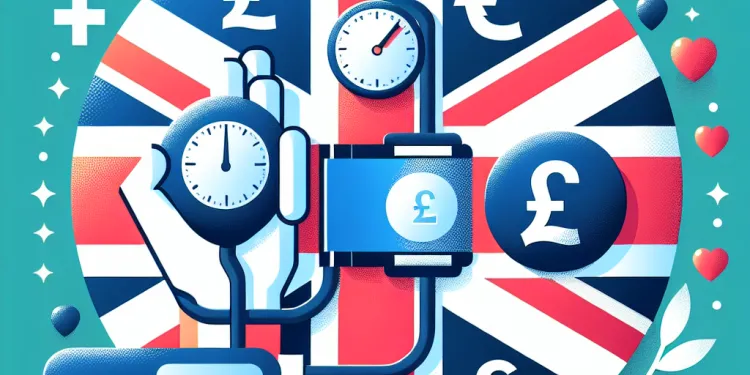
Find Help
More Items From Ergsy search
-
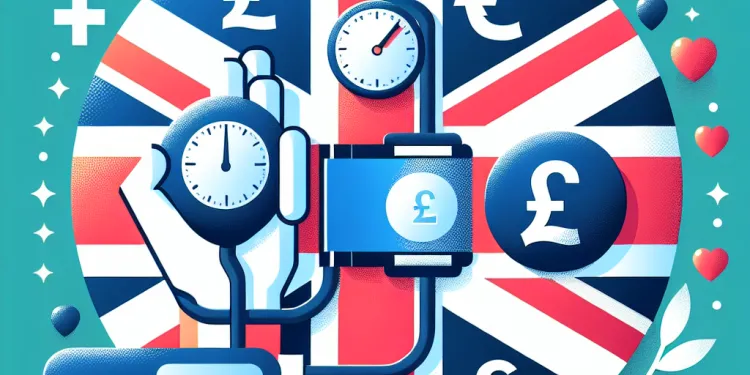
What is high blood pressure?
Relevance: 100%
-
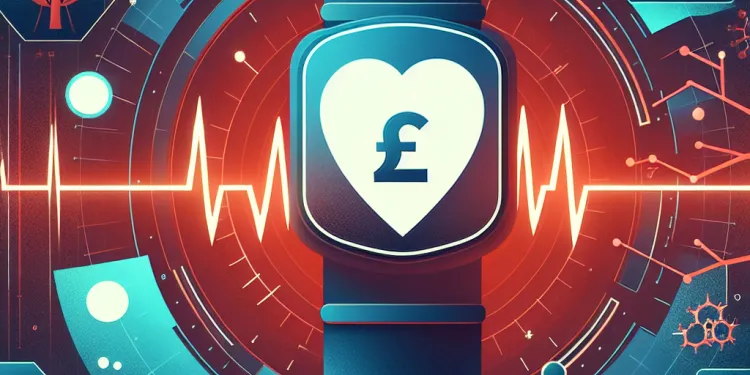
What causes high blood pressure?
Relevance: 95%
-
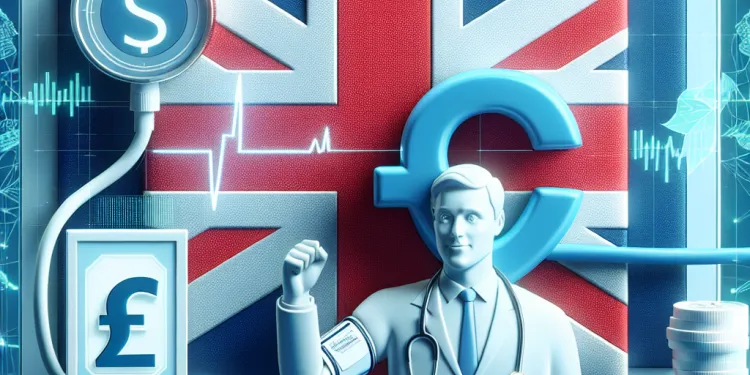
Can high blood pressure be prevented?
Relevance: 95%
-
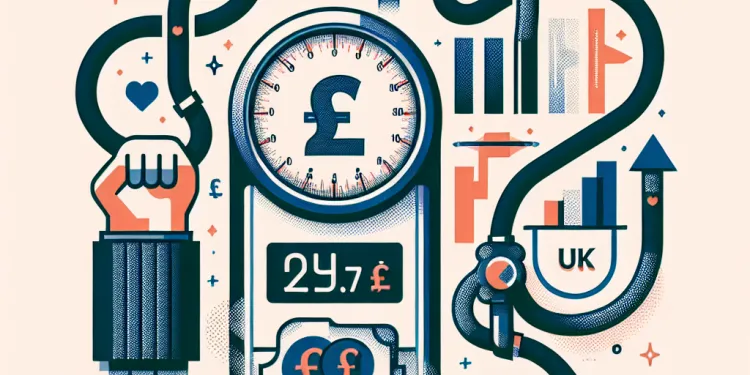
How is high blood pressure diagnosed?
Relevance: 95%
-
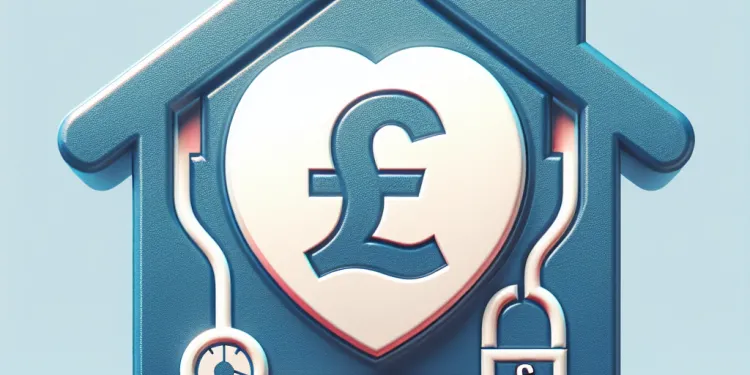
What are the risks of having high blood pressure?
Relevance: 91%
-
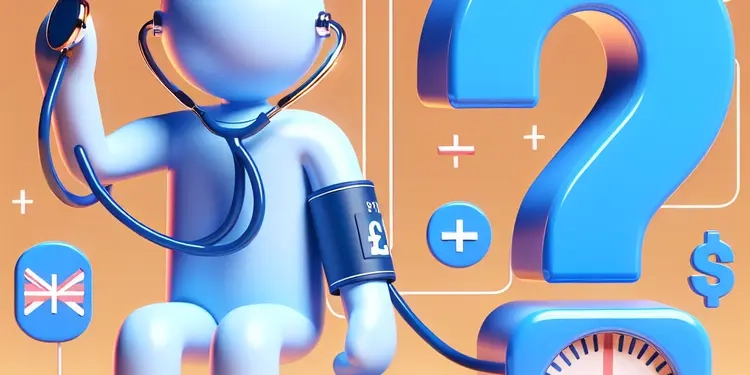
Should I test my child for high blood pressure?
Relevance: 90%
-
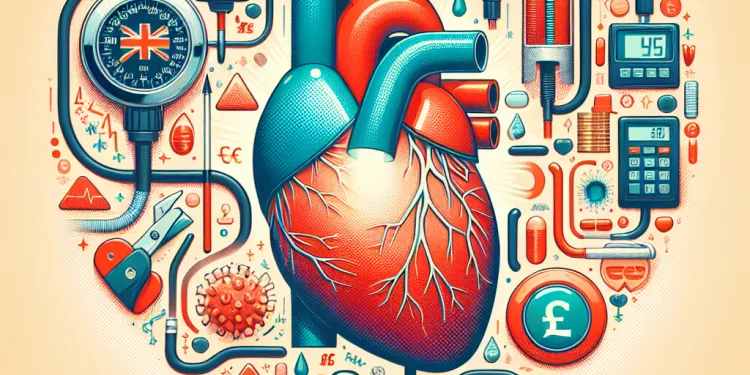
How can high blood pressure be treated?
Relevance: 90%
-
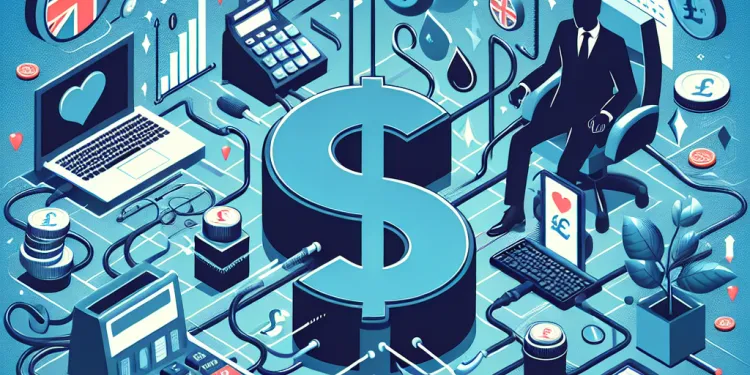
Can stress cause high blood pressure?
Relevance: 90%
-
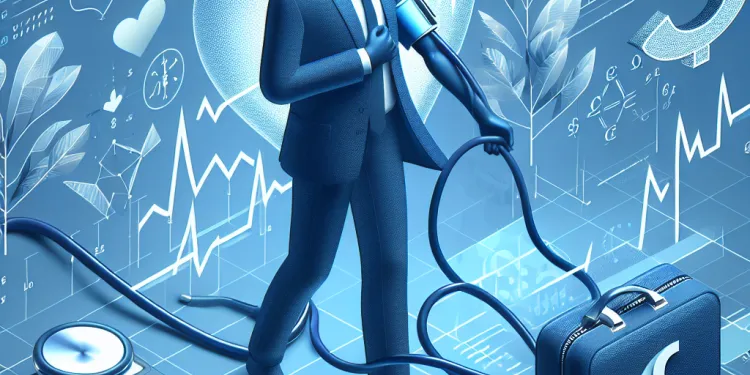
Why is high blood pressure called a 'silent killer'?
Relevance: 87%
-
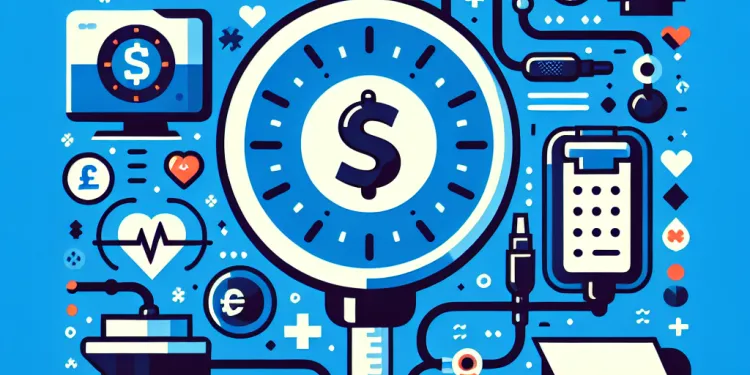
How do medications help control high blood pressure?
Relevance: 87%
-
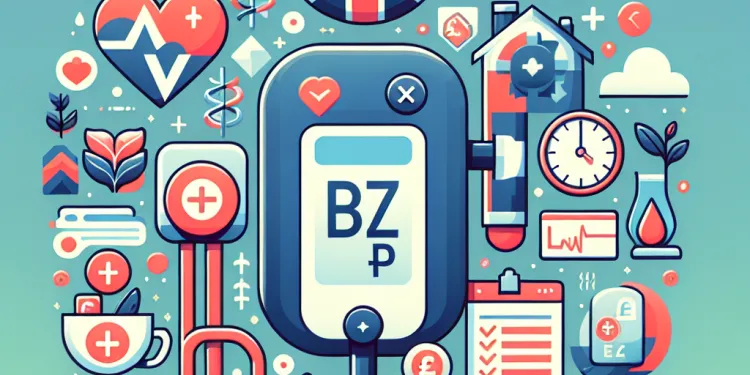
Can high blood pressure lead to other health problems?
Relevance: 84%
-
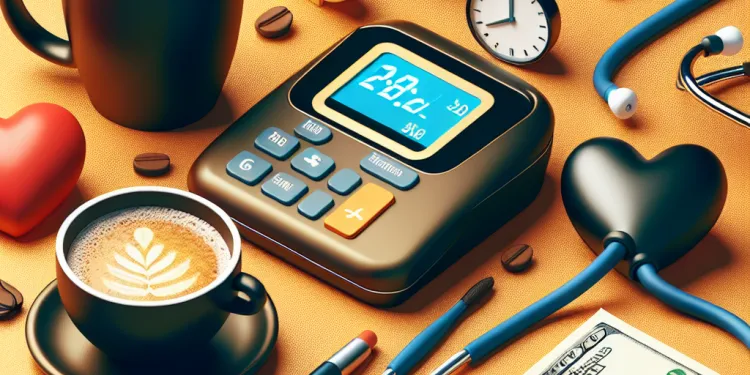
Should people with high blood pressure avoid coffee entirely?
Relevance: 83%
-
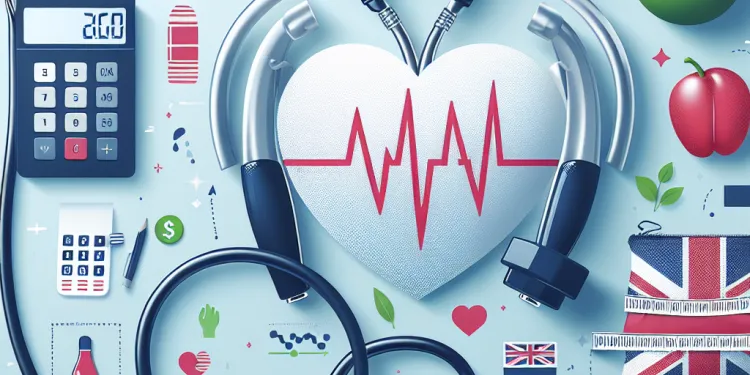
Can weight loss help reduce high blood pressure?
Relevance: 82%
-
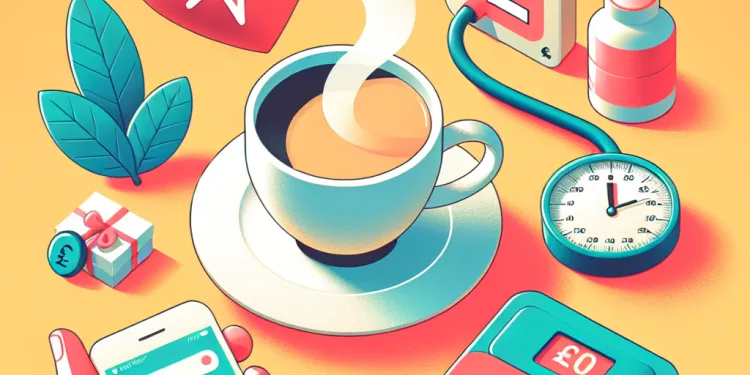
Is Your Morning Coffee a Risk Factor for High Blood Pressure?
Relevance: 81%
-
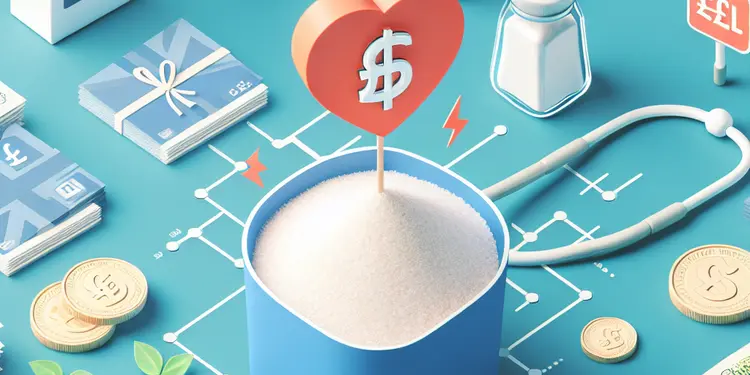
What is the ideal salt intake for someone with high blood pressure?
Relevance: 81%
-
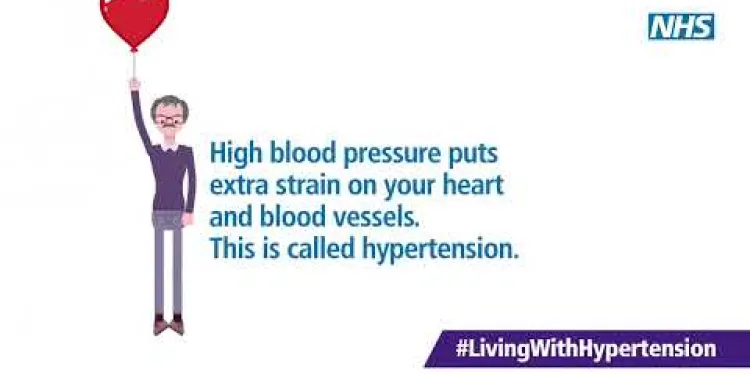
Blood pressure too high? Living with hypertension animation
Relevance: 80%
-
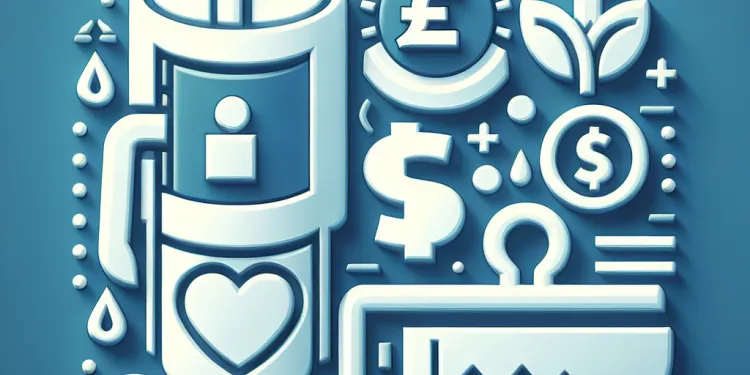
How much caffeine is generally considered safe for people with high blood pressure?
Relevance: 78%
-
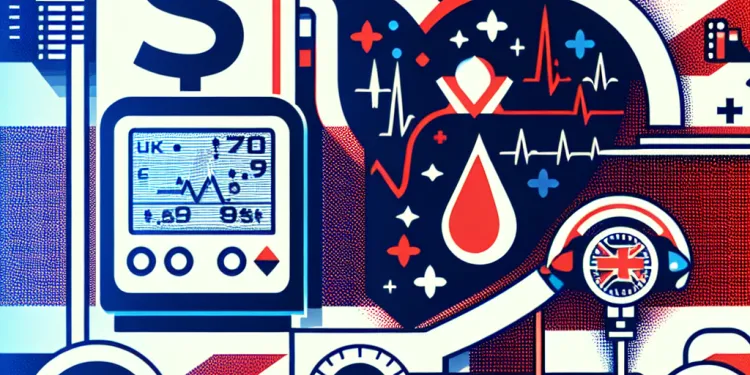
Is high blood pressure hereditary?
Relevance: 78%
-
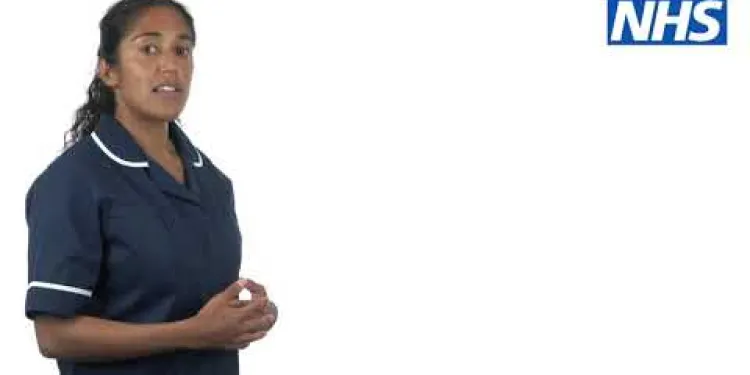
Seven Reaasons For Measuring blood pressure
Relevance: 73%
-
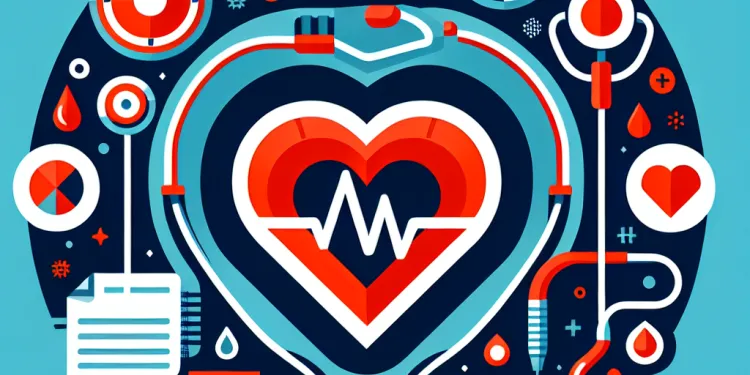
What are the symptoms of high blood pressure?
Relevance: 73%
-

Does drinking coffee every morning increase the risk of developing high blood pressure?
Relevance: 73%
-
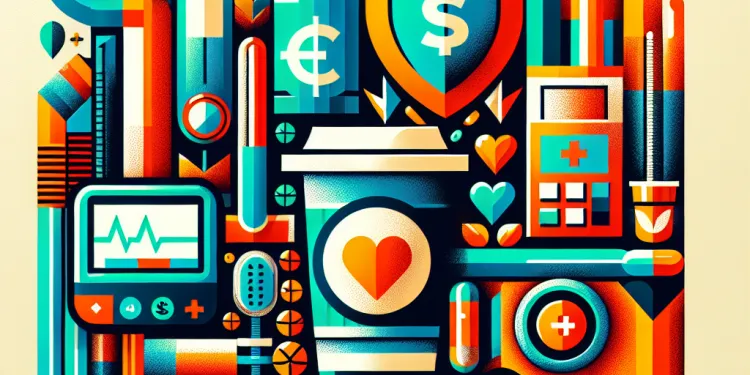
What are the symptoms of caffeine-induced high blood pressure?
Relevance: 69%
-
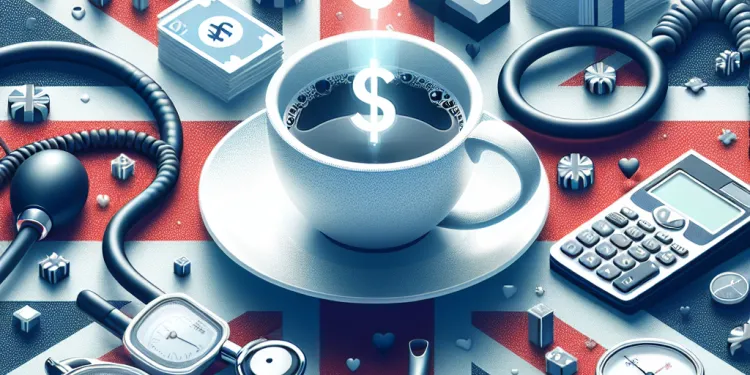
Does caffeine affect blood pressure?
Relevance: 68%
-
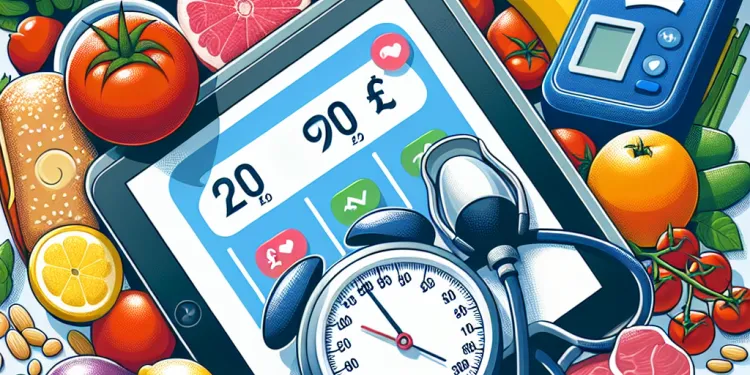
How does diet affect blood pressure?
Relevance: 68%
-
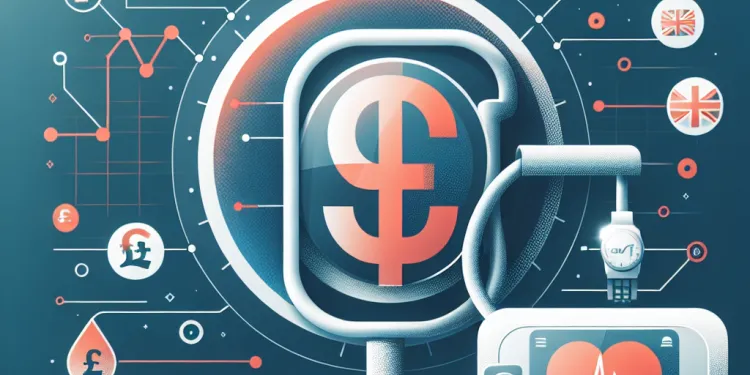
How often should I check my blood pressure?
Relevance: 68%
-
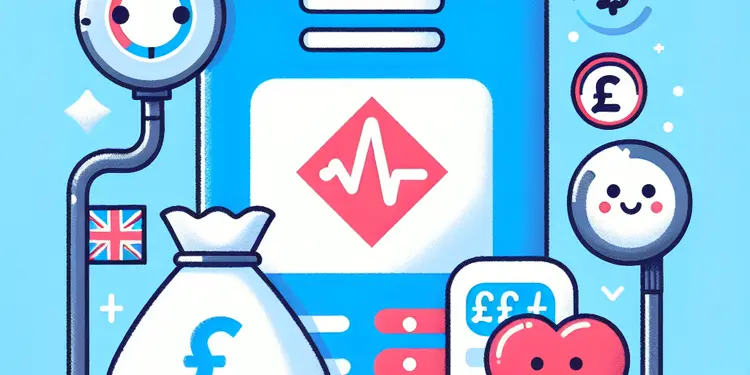
How does salt impact blood pressure?
Relevance: 68%
-
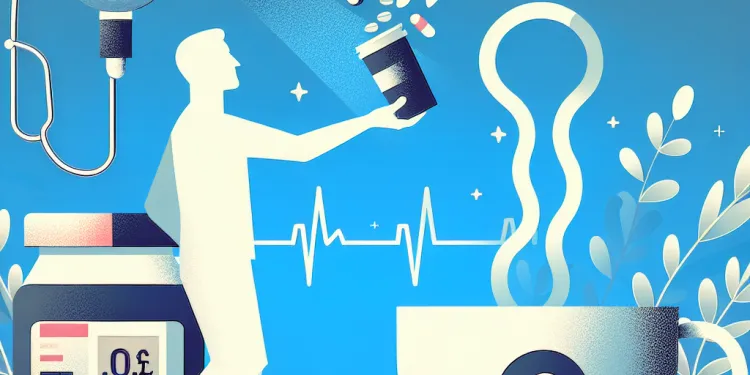
Is it safe to take blood pressure medication with coffee?
Relevance: 66%
-
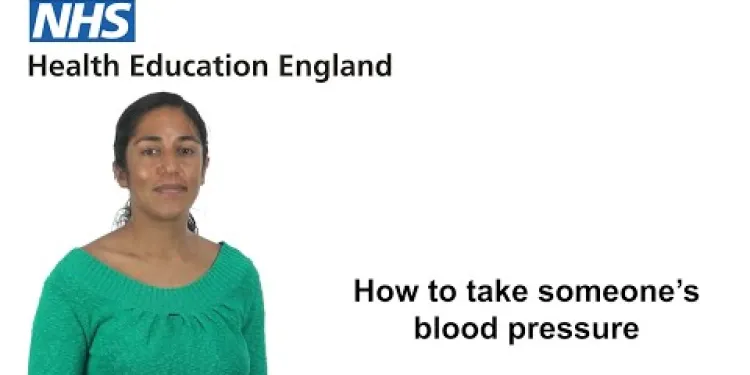
How to take someone's blood pressure
Relevance: 66%
-

How does caffeine affect blood pressure?
Relevance: 66%
-
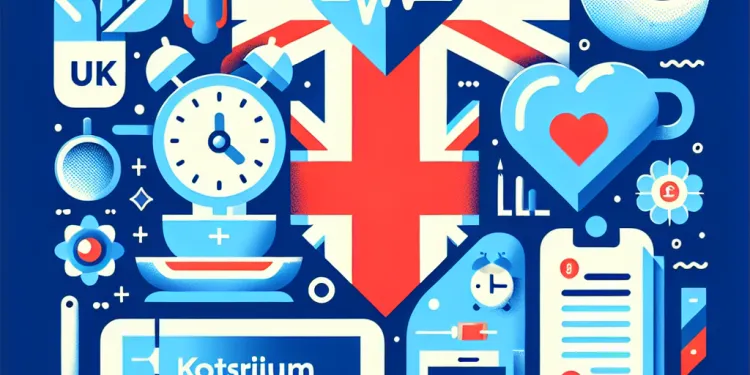
What is the role of potassium in managing blood pressure?
Relevance: 65%
-

Can decaffeinated coffee affect blood pressure?
Relevance: 64%
-
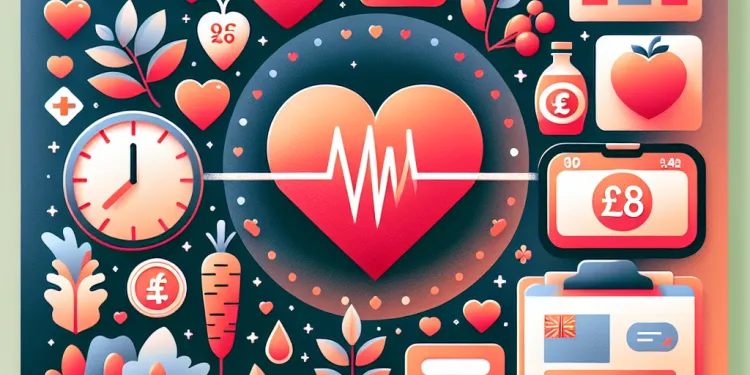
What lifestyle changes can lower blood pressure?
Relevance: 63%
-
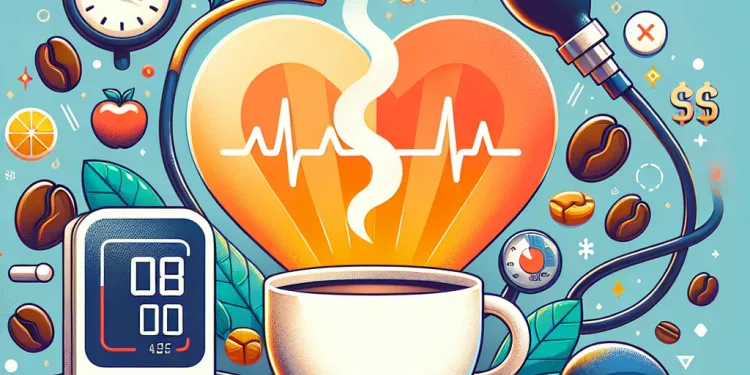
What is the link between coffee consumption and high blood pressure?
Relevance: 62%
-
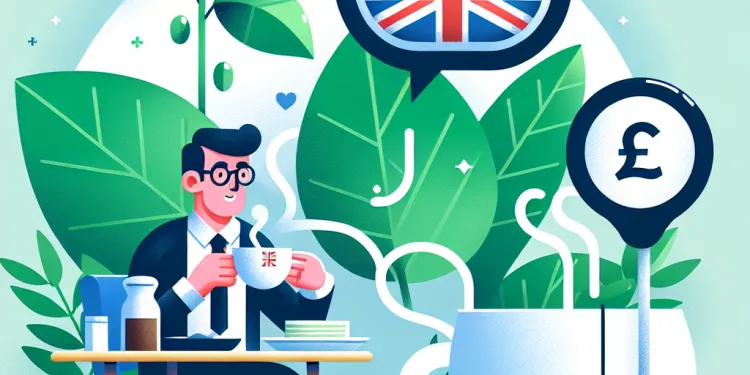
Is green tea a better alternative to coffee for blood pressure management?
Relevance: 62%
-

How can one minimize the impact of coffee on blood pressure?
Relevance: 61%
-

Are there any other factors in coffee that may affect blood pressure?
Relevance: 59%
-
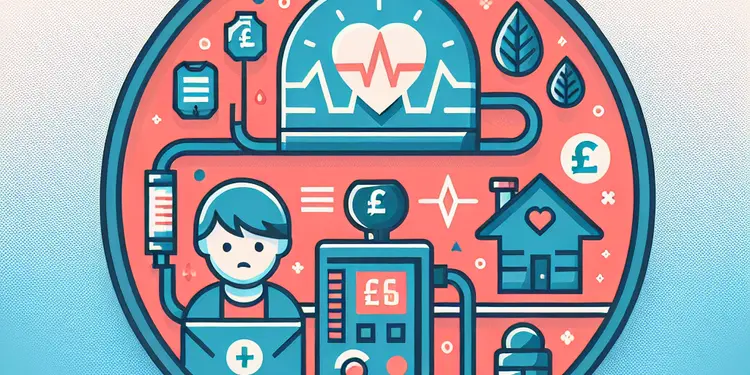
What is high blood pressure in children?
Relevance: 57%
-
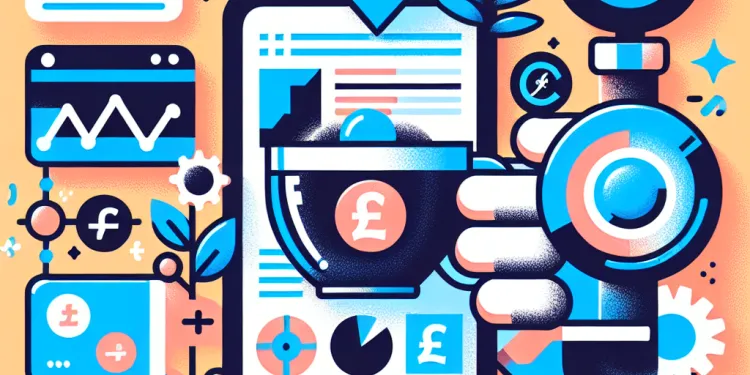
How does regular caffeine consumption impact tolerance and blood pressure?
Relevance: 57%
-

How soon after drinking coffee can blood pressure be affected?
Relevance: 57%
-
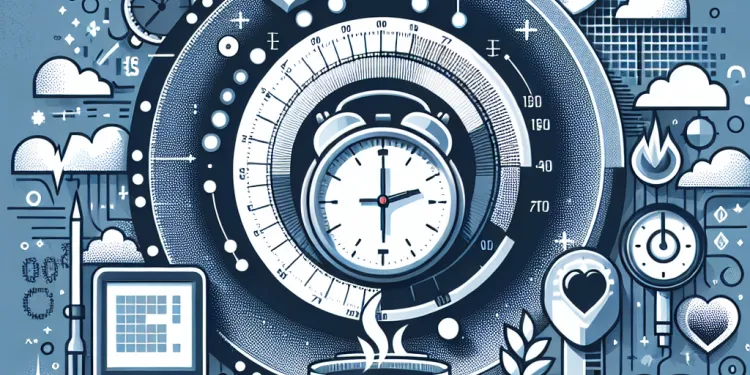
Is there a specific time of day when coffee has the most impact on blood pressure?
Relevance: 56%
What is High Blood Pressure?
High blood pressure, also known as hypertension, is a common condition in which the long-term force of the blood against your artery walls is high enough that it may eventually cause health problems, such as heart disease. In the UK, it's estimated that around one in three adults has high blood pressure, although many will not realise it. High blood pressure often has no symptoms, but it is a significant risk factor for cardiovascular diseases, including strokes, heart attacks, and heart failure.
Understanding Blood Pressure Readings
Blood pressure is measured in millimetres of mercury (mmHg) and is recorded with two numbers: systolic pressure (the higher number) and diastolic pressure (the lower number). The systolic pressure is the force at which your heart pumps blood around your body, and the diastolic pressure is the resistance to the blood flow in the blood vessels. High blood pressure is considered to be 140/90mmHg or higher (or 150/90mmHg or higher if you're over the age of 80).
Causes of High Blood Pressure
The exact causes of high blood pressure are not always clear, but several factors can play a role. These include unhealthy lifestyle choices like a diet high in salt, fat, and cholesterol, lack of physical activity, being overweight, smoking, and excessive alcohol consumption. Stress can also contribute to high blood pressure. Additionally, high blood pressure can be related to genetics, age, or underlying health conditions such as kidney disease, diabetes, or hormone disorders.
Symptoms of High Blood Pressure
One of the reasons high blood pressure is dangerous is because it often has no noticeable symptoms, which is why it is sometimes referred to as the "silent killer." Some people may experience symptoms like headaches, shortness of breath, dizziness, chest pain, or nosebleeds, but these signs are not specific and usually don’t occur until high blood pressure has reached a severe or life-threatening stage. Because of its asymptomatic nature, regular blood pressure checks are essential for early detection.
Treatment and Management
Managing high blood pressure usually involves lifestyle changes and sometimes medication. Lifestyle changes include eating a balanced diet low in sodium, regular physical activity, maintaining a healthy weight, moderating alcohol intake, quitting smoking, and managing stress. When lifestyle changes alone are not enough, doctors may prescribe medications to help lower blood pressure. These medications work in different ways, including removing excess fluid from the body, relaxing blood vessels, or making the heart beat with less force.
Conclusion
High blood pressure is a serious condition that can lead to life-threatening complications if left untreated. Regular monitoring, awareness of risk factors, and proactive management through lifestyle changes and medication can effectively control blood pressure levels. If you're concerned about your blood pressure, consult with a healthcare professional who can provide guidance and support tailored to your personal health needs.
What is High Blood Pressure?
High blood pressure means the blood in your body pushes too hard on the walls of your blood tubes. It is also called hypertension. It can make you sick if not treated. This can lead to problems like heart disease. Many people have high blood pressure but do not know it because it often does not cause any signs you can feel.
Understanding Blood Pressure Readings
Blood pressure is shown with two numbers. The top number (systolic) shows how hard your heart pumps blood. The bottom number (diastolic) shows the resistance in your blood tubes. High blood pressure means the number is 140/90 or more. For people over 80, it is 150/90 or more.
Causes of High Blood Pressure
Many things can cause high blood pressure. These include eating too much salt, fat, or unhealthy foods, not moving enough, being overweight, smoking, and drinking too much alcohol. Stress can also be a cause. It might be genetic, which means it runs in families. Other health problems like kidney or hormone issues can also cause it.
Symptoms of High Blood Pressure
High blood pressure is tricky because you often cannot feel it. This is why it is sometimes called the "silent killer." Some people might have headaches, feel dizzy, or get nosebleeds, but these are not common until things get serious. It’s important to check your blood pressure regularly.
Treatment and Management
To manage high blood pressure, you can make some lifestyle changes. Eat healthy food, move your body more, keep a healthy weight, drink less alcohol, quit smoking, and stay calm. Sometimes, you might also need medicine. Doctors can give you medicine that helps your blood flow better or helps your heart work less hard.
Conclusion
High blood pressure is a serious health issue. It can cause big problems if not cared for. Check your blood pressure often. By eating well, exercising, and maybe taking medicine, you can help control it. If you’re worried about your blood pressure, talk to a doctor who can help you make a plan that’s right for you.
Frequently Asked Questions
What is high blood pressure?
High blood pressure, also known as hypertension, is a condition where the force of blood against the artery walls is too high.
What causes high blood pressure?
High blood pressure can be caused by a variety of factors, including genetics, poor diet, lack of exercise, obesity, and stress.
What are the symptoms of high blood pressure?
High blood pressure often has no symptoms, which is why it is called a 'silent killer.' Some people may experience headaches, shortness of breath, or nosebleeds, but these are not specific.
How is high blood pressure diagnosed?
High blood pressure is diagnosed by measuring blood pressure using a sphygmomanometer in a healthcare setting.
What are normal blood pressure ranges?
Normal blood pressure is usually considered to be 120/80 mmHg or lower. Elevated levels typically begin at 130/80 mmHg.
What are the risks of having high blood pressure?
High blood pressure increases the risk of heart disease, stroke, kidney disease, and other serious health issues.
How can high blood pressure be treated?
High blood pressure can be managed through lifestyle changes such as diet and exercise, and, if necessary, medication prescribed by a doctor.
Can high blood pressure be prevented?
Yes, high blood pressure can often be prevented by maintaining a healthy lifestyle, including a balanced diet, regular physical activity, and avoiding excessive alcohol and tobacco use.
How does diet affect blood pressure?
A diet high in salt, fat, and cholesterol can increase blood pressure, while a diet rich in fruits, vegetables, and whole grains can help lower it.
Is high blood pressure hereditary?
Genetics can play a role in high blood pressure, meaning it can run in families, but lifestyle factors are also significant contributors.
What is the DASH diet?
The DASH diet stands for Dietary Approaches to Stop Hypertension. It emphasizes fruits, vegetables, and low-fat dairy, and is low in saturated fat and cholesterol.
Can stress cause high blood pressure?
Stress can temporarily increase blood pressure, but chronic stress may contribute to its long-term persistence.
Why is high blood pressure called a 'silent killer'?
High blood pressure often has no noticeable symptoms, allowing it to damage the body without the person's awareness.
How often should I check my blood pressure?
It is recommended to check blood pressure regularly, at least once a year for healthy adults and more frequently for those with a history or risk of hypertension.
Does caffeine affect blood pressure?
Caffeine can cause a short, dramatic increase in blood pressure in some people, even if they consume it regularly.
What lifestyle changes can lower blood pressure?
Lifestyle changes include losing weight, exercising regularly, eating a balanced diet, reducing sodium intake, moderating alcohol consumption, and quitting smoking.
Can weight loss help reduce high blood pressure?
Yes, losing even a small amount of weight can help lower high blood pressure in overweight or obese individuals.
How do medications help control high blood pressure?
Medications help control high blood pressure by relaxing blood vessels, reducing heart rate, or removing excess fluid and sodium from the body.
Can high blood pressure lead to other health problems?
Yes, chronic high blood pressure can lead to serious health problems such as heart attack, stroke, kidney failure, and vision loss.
What is the role of potassium in managing blood pressure?
Potassium helps balance the amount of sodium in your cells, and having the right balance of potassium and sodium is important for controlling blood pressure.
What is high blood pressure?
High blood pressure is when your blood moves through your body with too much force. It's like a hose with too much water pushing through. This can be bad for your heart and body.
Ways to help:
- Eat healthy food like fruits and vegetables.
- Move your body with fun activities like walking or playing sports.
- Visit your doctor to check your blood pressure.
- Try to stay calm and not worry too much.
Talk to an adult if you have questions. They can help explain more.
High blood pressure, or hypertension, means your blood is pushing too hard against your artery walls.
What makes blood pressure high?
Blood pressure can be high because of different things:
- Eating too much salty food
- Not exercising enough
- Being overweight
- Feeling stressed or worried a lot
- Smoking cigarettes
- Drinking too much alcohol
- Getting older
- Having family members with high blood pressure
It's important to talk to a doctor if you have high blood pressure. They can help you feel better.
Here are some things that can help:
- Eat healthy foods
- Exercise regularly
- Relax and find ways to manage stress
- Quit smoking
- Limit how much alcohol you drink
If you need help, ask a family member or a friend to support you.
High blood pressure means your blood moves too fast in your body. Many things can make this happen, like:
- Family members who have high blood pressure too.
- Eating unhealthy food.
- Not moving your body enough.
- Being too heavy.
- Feeling worried or stressed a lot.
If you find reading difficult, you can:
- Ask someone to read with you.
- Listen to audiobooks or use text-to-speech tools.
- Use a dictionary or word app for help with hard words.
What are the signs of high blood pressure?
High blood pressure can sometimes be hard to notice because it often does not cause any signs. But some people may feel:
- Bad headaches
- Tired or confused
- Chest pain
- Problems seeing well
- Having trouble breathing
- Pounding in chest, neck, or ears
If you feel these signs, it is important to talk to a doctor. They can help you check your blood pressure.
Using a blood pressure monitor at home can also help you keep track. Ask someone you trust to help you with it if you find it tricky.
High blood pressure means your heart works hard to push blood around your body. You might not feel sick, which is why it's called a 'silent killer.' Sometimes, people get headaches, find it hard to breathe, or have nosebleeds, but these can happen for other reasons too.
How do doctors find out if someone has high blood pressure?
To know if someone has high blood pressure, a doctor will check the pressure in their blood. This is called a blood pressure test.
Here is what happens:
- The doctor uses a special band called a cuff. The cuff is placed around your arm.
- The cuff gets tight, then loose. This helps the doctor measure the pressure in your blood.
- You will see two numbers. These numbers tell the doctor if your blood pressure is high or normal.
If you need help, you can:
- Ask the doctor to explain what the numbers mean.
- Bring someone with you to the doctor. They can help you listen and remember.
- Write down what the doctor says.
Remember, you can always ask the doctor questions if you are not sure about something.
Doctors check if you have high blood pressure by using a special tool called a sphygmomanometer. They do this when you go to the doctor's office.
What is a normal blood pressure?
Normal blood pressure is when the numbers are 120 over 80 or lower. High blood pressure starts at 130 over 80.
What can happen if your blood pressure is too high?
High blood pressure can make you sick. It can hurt your heart, brain, and kidneys.
How can you treat high blood pressure?
High blood pressure means your heart needs to work harder. It can make you sick. Here are some easy ways to help:
- Eat healthy food. Eat fruits, vegetables, and whole grains.
- Exercise. Move your body every day. It helps your heart.
- Take medicine. Sometimes, doctors give you pills to help. Remember to take them.
- Relax. Try deep breathing or listening to calm music.
- See your doctor. Talk to your doctor and follow their advice.
You can also use tools like picture charts or apps that remind you to take medicine or exercise. These things can help too!
You can help control high blood pressure by making changes in your life. This means eating healthy foods and doing exercise. Sometimes, a doctor might give you medicine to help.
Can you stop high blood pressure?
Yes, you can often stop high blood pressure by living healthily. This means eating good foods, moving your body often, and not drinking too much alcohol or using tobacco.
How does food change blood pressure?
Food changes how your blood moves in your body. Some foods can make blood pressure go up. Some foods can make blood pressure go down.
Eat more fruits and vegetables to help blood pressure. Drink water. Avoid very salty foods. It's also good to avoid sugary drinks.
If you find reading hard, ask someone for help. You can also use pictures or videos to learn. Try reading one small bit at a time, and take breaks.
Eating a lot of salty, fatty, and greasy foods can make your heart work harder. But eating lots of fruits, veggies, and grains is good for your heart and can help it stay healthy.
Can you get high blood pressure from your parents?
Some people have high blood pressure because their parents or family members do. This means it can run in the family.
Here are some things that can help:
- Ask your doctor about high blood pressure.
- Eat healthy foods like fruits and vegetables.
- Try to move or play a little every day.
- Check your blood pressure with a doctor or nurse.
High blood pressure can be passed down in families because of genes. This means if your family members have it, you might too. How you live, like what you eat and how much you move, also matters a lot.
What is the DASH diet?
The DASH diet is a way of eating that helps you stay healthy. It can lower your blood pressure. Doctors often suggest this diet to people.
What does DASH stand for? It stands for Dietary Approaches to Stop Hypertension.
What do you eat on the DASH diet? You eat lots of fruits, vegetables, and whole grains. You also have foods with less salt. This means you eat foods that are fresh and natural, like apples and carrots.
How can I follow the DASH diet? You can make small changes in what you eat. Choose fruits or nuts for snacks instead of chips. Drink water instead of soda.
It's a good idea to talk to a doctor or a dietitian if you want help with the DASH diet.
Tools that can help:
- Pictures of foods to help you choose what to eat.
- Using a food diary to write down what you eat.
The DASH diet is a way of eating to help lower high blood pressure. It includes lots of fruits and vegetables. You also eat low-fat milk products. The diet does not have much bad fat or cholesterol.
Can stress make your blood pressure go up?
Feeling stressed can make your blood pressure go up for a short time. If you feel stressed a lot, it might keep your blood pressure high.
Why is high blood pressure called a 'silent killer'?
High blood pressure is sometimes called a 'silent killer'. This is because it often doesn't show any signs. People usually don't feel sick or see anything wrong.
But, if high blood pressure isn't treated, it can harm the body. It can cause problems like heart disease or a stroke.
It is important to check your blood pressure regularly. A doctor can tell you if your blood pressure is too high.
Using a simple blood pressure monitor at home can help you keep track. Eating healthy food and exercising can also help keep blood pressure normal.
High blood pressure can be very sneaky. You might not feel anything wrong. But it can still hurt your body without you knowing.
How often should I check my blood pressure?
Check your blood pressure every week. This helps you stay healthy. If you feel unwell, check it more often. A doctor can help you decide what is best for you.
Use a big and easy-to-read blood pressure monitor. Ask someone to help if needed.
Get your blood pressure checked often. If you are healthy, do it at least once a year. If you have or might get high blood pressure, check it more often.
Does caffeine make blood pressure go up?
Caffeine can make your blood pressure go up quickly for a short time. This can happen even if you drink caffeine a lot.
How can you make your blood pressure lower?
There are some changes you can make to feel healthier. You can try losing some weight, doing exercise often, eating healthy foods, eating less salty food, drinking less alcohol, and stopping smoking.
Can losing weight help lower high blood pressure?
Yes, losing weight can help. It can make your blood pressure lower. This is good for your heart and health.
Here are some tips to help you lose weight:
- Eat healthy foods like fruits, vegetables, and whole grains.
- Try to move your body every day. You can walk, run, or play outside.
- Drink water. It is better than sugary drinks.
- Ask a grown-up to help you with your meals and exercises.
There are also tools to help you:
- A food diary to write down what you eat.
- A step counter to see how much you walk.
- An app that helps you track your progress.
Always talk to a doctor or a health professional for advice.
Yes, losing a little bit of weight can help make high blood pressure better if you are overweight or very heavy.
How do medicines help with high blood pressure?
Medicines can help lower high blood pressure. Here is how they work:
- Relax: Some medicines help your blood vessels relax. This makes it easier for blood to flow.
- Remove extra water: Other medicines help your body get rid of extra water and salt. This helps lower blood pressure.
- Slow down: Some medicines make your heart beat slower and more gently.
If you have high blood pressure, talk to your doctor. They can help you find the right medicine. Use tools like talking to health helpers or having a trusted adult read with you to better understand your medicine.
Medicines can help keep blood pressure healthy. They do this by making the blood vessels relax, slowing down the heart, or getting rid of extra water and salt in the body.
Can high blood pressure cause other health problems?
High blood pressure can make you sick in other ways.
If your blood pressure is too high, it can hurt your heart and other parts of your body.
Here are some things you can do to help:
- Visit your doctor regularly.
- Eat healthy foods like fruits and veggies.
- Exercise often, like taking walks.
- Take your medicine if the doctor gives you any.
It is important to talk with someone if you are worried.
You can ask your family or doctor for help.
Yes, having high blood pressure for a long time can make you very sick. It can hurt your heart, cause a stroke, make your kidneys stop working, and damage your eyes.
Remember, it's important to stay healthy. You can do things like eating good food, exercising, and listening to your doctor.
How does potassium help control blood pressure?
Potassium helps keep the right amount of salt in your cells. This is important for keeping your blood pressure healthy.
Useful Links
This website offers general information and is not a substitute for professional advice.
Always seek guidance from qualified professionals.
If you have any medical concerns or need urgent help, contact a healthcare professional or emergency services immediately.
- Ergsy carfully checks the information in the videos we provide here.
- Videos shown by Youtube after a video has completed, have NOT been reviewed by ERGSY.
- To view, click the arrow in centre of video.
- Most of the videos you find here will have subtitles and/or closed captions available.
- You may need to turn these on, and choose your preferred language.
- Go to the video you'd like to watch.
- If closed captions (CC) are available, settings will be visible on the bottom right of the video player.
- To turn on Captions, click settings .
- To turn off Captions, click settings again.
More Items From Ergsy search
-

What is high blood pressure?
Relevance: 100%
-

What causes high blood pressure?
Relevance: 95%
-

Can high blood pressure be prevented?
Relevance: 95%
-

How is high blood pressure diagnosed?
Relevance: 95%
-

What are the risks of having high blood pressure?
Relevance: 91%
-

Should I test my child for high blood pressure?
Relevance: 90%
-

How can high blood pressure be treated?
Relevance: 90%
-

Can stress cause high blood pressure?
Relevance: 90%
-

Why is high blood pressure called a 'silent killer'?
Relevance: 87%
-

How do medications help control high blood pressure?
Relevance: 87%
-

Can high blood pressure lead to other health problems?
Relevance: 84%
-

Should people with high blood pressure avoid coffee entirely?
Relevance: 83%
-

Can weight loss help reduce high blood pressure?
Relevance: 82%
-

Is Your Morning Coffee a Risk Factor for High Blood Pressure?
Relevance: 81%
-

What is the ideal salt intake for someone with high blood pressure?
Relevance: 81%
-

Blood pressure too high? Living with hypertension animation
Relevance: 80%
-

How much caffeine is generally considered safe for people with high blood pressure?
Relevance: 78%
-

Is high blood pressure hereditary?
Relevance: 78%
-

Seven Reaasons For Measuring blood pressure
Relevance: 73%
-

What are the symptoms of high blood pressure?
Relevance: 73%
-

Does drinking coffee every morning increase the risk of developing high blood pressure?
Relevance: 73%
-

What are the symptoms of caffeine-induced high blood pressure?
Relevance: 69%
-

Does caffeine affect blood pressure?
Relevance: 68%
-

How does diet affect blood pressure?
Relevance: 68%
-

How often should I check my blood pressure?
Relevance: 68%
-

How does salt impact blood pressure?
Relevance: 68%
-

Is it safe to take blood pressure medication with coffee?
Relevance: 66%
-

How to take someone's blood pressure
Relevance: 66%
-

How does caffeine affect blood pressure?
Relevance: 66%
-

What is the role of potassium in managing blood pressure?
Relevance: 65%
-

Can decaffeinated coffee affect blood pressure?
Relevance: 64%
-

What lifestyle changes can lower blood pressure?
Relevance: 63%
-

What is the link between coffee consumption and high blood pressure?
Relevance: 62%
-

Is green tea a better alternative to coffee for blood pressure management?
Relevance: 62%
-

How can one minimize the impact of coffee on blood pressure?
Relevance: 61%
-

Are there any other factors in coffee that may affect blood pressure?
Relevance: 59%
-

What is high blood pressure in children?
Relevance: 57%
-

How does regular caffeine consumption impact tolerance and blood pressure?
Relevance: 57%
-

How soon after drinking coffee can blood pressure be affected?
Relevance: 57%
-

Is there a specific time of day when coffee has the most impact on blood pressure?
Relevance: 56%


